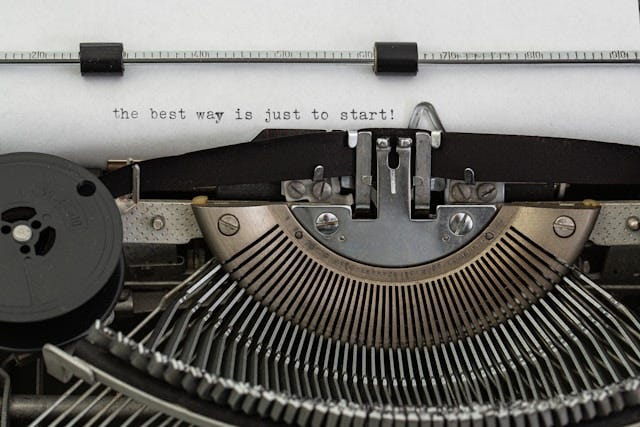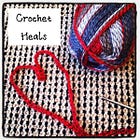Why It Is Important to Support Indie Writers ... A Press Release to Explain To Others
People who put their heart into their work are better for this world than people who are doing things rotely.
I came to Substack just over a year ago but I had already been writing a subscription newsletter through Patreon for a long time. I had started there years back and then revamped my approach in 2021 to emphasize the newsletter and community as the main reasons to support the work (rather than all the merch/benefits I’d been trying to use to incentivize.) Patreon wasn’t really the best platform for that, which is why I came to Substack, but it did work well enough.
In any case, when I did that revamp, I wrote something of a press release. Well, it was somewhere between a formal press release and an informative blog post. It was a way to try to explain to people what the value of a subscription-based newsletter is because it wasn’t something people had really heard of. I wanted to share that with you today, because I think there are some gems in there. I plan to mine it myself for those gems and see how I might tweak them to help people better understand what Substack support can be about for writers and readers. In fact, I think I’ll use it to write a more formal press release.
Here’s the original piece:
Why It Is Important to Support Indie Writers Through Patreon Substack
Patreon offers one way through which you can give direct support to creative people. This allows us to fulfill our dreams, pursue our passions, delve into our research and create authentic writing that isn’t subject to the limitations of writing for companies or to please search engines.
Kathryn Vercillo has been a professional full-time writer for the better part of two decades. She has worked for companies large and small, across a diverse range of industries, has published in print magazines and has authored more than half a dozen books. For years she enjoyed the craft of blogging, but recently has found that it no longer lends itself to the kind of open, honest exchange that it did when it first became popular.
The short of it is that in order to get your work seen online, you need to please Google’s search engines. That means that you end up writing more to emphasize keywords than to share genuine thoughts, even when you have no interest in working this way. As a blogger, you make money selling ad space, which is only successful if you have a lot of traffic, which only happens if people find you through Google.
There is also an element of social media involved, which means that you have to curate your own networks to support your brand. And even when you play the game well, you are competing with very large companies that have time to devote to the updates that put them at the top of the game. Kathryn knows, because she’s run a successful crochet blog (at one time, Crochet Concupiscence, which she ran single-handedly for six years, had 600,000+ monthly page views and a social network of well over 100,000 followers). She’s also written for many of the large crochet blogs out there and seen from the inside how hard it is to compete with their resources.
Of course, there are other elements to it all, but that’s the simple breakdown. If you’ve ever wondered why all blogs on a topic basically say the same thing, that’s the key reason. In the world of crochet, this meant that Kathryn wanted to write about crochet art and fashion and the mental health benefits of crafting … and she did do all of that because it meant a lot to her … but she only got significant traffic to her blog if she also wrote a lot about crochet patterns and “how to crochet” and other keyword things that satisfy Google.
Blogs started as a way for one person to speak directly to an audience interested in the things that they were interested in and for those readers to be able to comment back and add to the conversation and for change to be made in the world one post at a time. Maybe there are some blogs still doing that but it’s not the norm anyway. When you support someone through Patreon, you help them financially to be able to do to the artistic, moving, creative work that they believe in. This puts better content into the world, content not driven by advertising money, and it allows you to put your own money into the things that mean something to you personally.
With Patreon, you get “rewards”, which vary from artist to artist, and you also help the whole community reach “milestones”. These are great, because you reap something for what you donate. But the real rewards is knowing that you’re supporting true independent artistic creation. Just a little bit per month goes a long way towards changing the status quo when it comes to how creative work is put out there.
With Kathryn’s Patreon, you get newsletters as rewards. There is a $1 per month newsletter about crochet that emphasizes the things that she cares about and those the community of her supporters has said that they want to see more of (which she regularly solicits feedback on). There is a $2 per month newsletter about people (couples, trios, families) that are collaborative creatively together. There is a $15 per month themed crochet newsletter based on her book Hook to Heal which offers therapeutic support via email – basically it’s creative coaching through crochet and you can get more support at higher funding levels. It’s also possible to get her books and other rewards through Patreon. In terms of milestones, Kathryn donates her books and services to people in need, particularly people with mental health issues, and each time the collective amount of donations goes up by $100, she increases the amount she donates.
People who put their heart into their work are better for this world than people who are doing things rotely. People who create are bringing new life into our communities. Patreon is a way to give to those people, to say that you support independent art, that you want to see indie writers thrive, that you believe in the creative process even more than the products it results in. Consider donating through Patreon (SUBSTACK) today.
Choose a Sliding Scale Discount:
Pick what’s right for you and sign up today:
24% off in ‘24 - The 2024 discount rate on an annual subscription
Flexible Discount - 10% off either monthly or annual subscriptions
Grateful for the Gift - 75% off one year
Gotta Pay the Rent Soon Discount - 50% off one year
Barely Getting By Discount - $10 flat rate for one year
Lucky 13 Discount - 13% off forever









No one seems to really care, so I usually don't bother.
I used them a lot in previous lives, and I do read them unless they are sent frequently or are too lengthy. I would link to the longer info and use the press release as an attention-getter